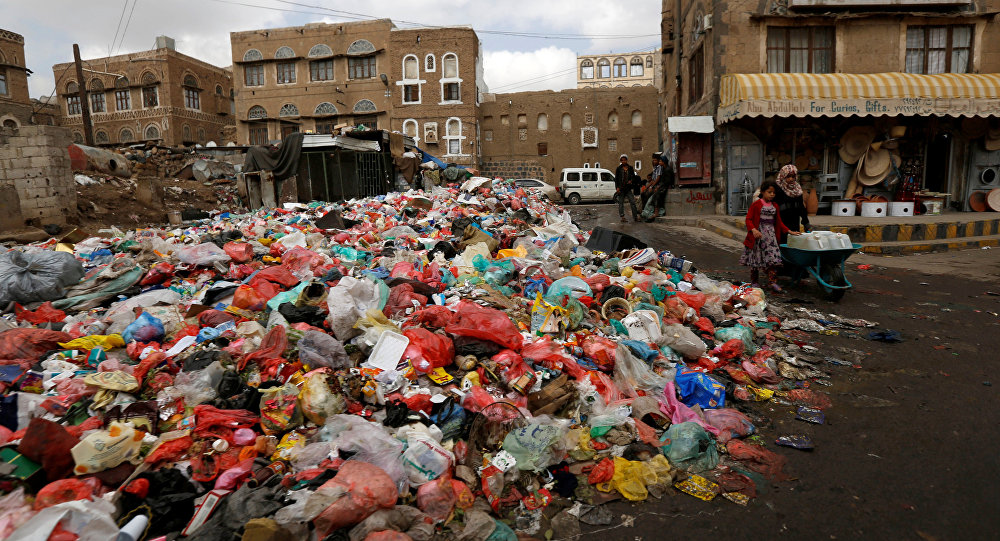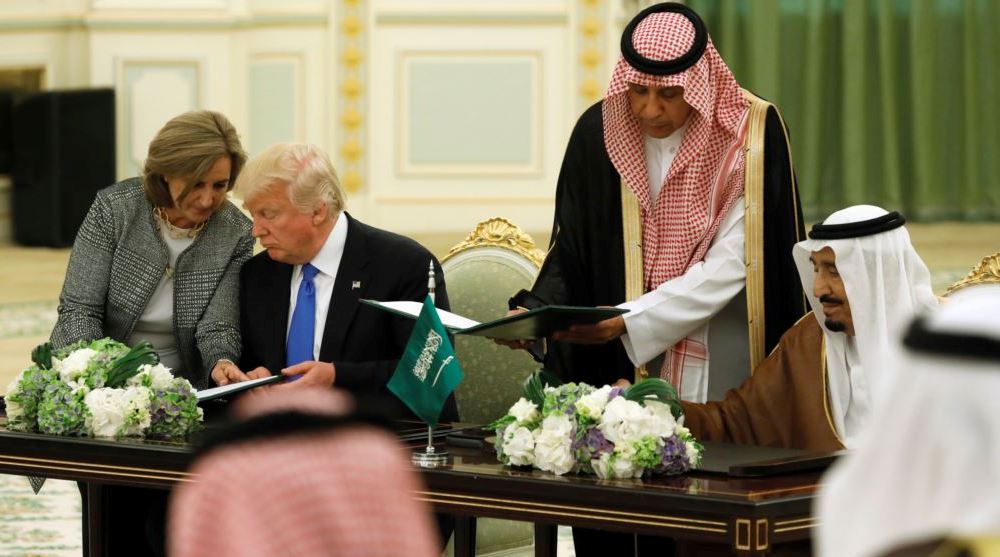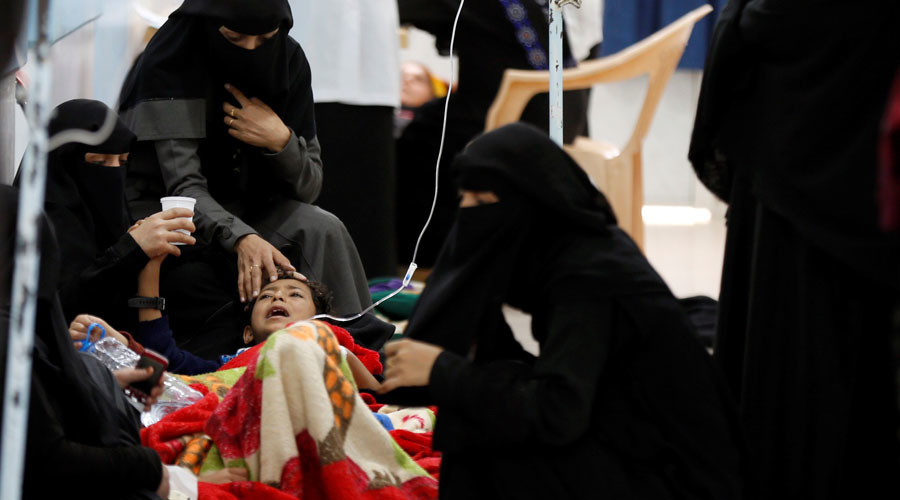Alwaght- A senior UN official warned treatable diseases like cholera could ravage Yemen this year if the ongoing Saudi-led aggression on the country continues and aid deliveries fail.
Jamie McGoldrick, the UN humanitarian chief in Yemen, said Tuesday that poverty and disease are visibly spreading amid the havoc of war.
McGoldrick spoke in the Jordanian capital of Amman after a recent trip to Yemen. The UN official noted that people in Yemen are “dying unnecessary, preventable deaths in quiet corners of villages.” He pointed out that the UN’s $2 billion Yemen aid program for 2017 is less than 20 percent funded.
The World Health Organization (WHO) on Monday released figures indicating that people who have died in a cholera epidemic affecting Yemen has risen to at least 471. However, WHO noted that the figures covering the period from April 27 to May 27, showed a "significant decrease" in the daily average number of cases recorded compared to the previous seven-day period.
The epidemic began in October and grew until December. It then dwindled but was never brought fully under control, and a new surge in cases began in April.
Save the Children organization has recently warned that cholera outbreak in Yemen would claim lives of thousands of people if the deadly disease is not brought under control until July.
The London-based NGO cited its staff in Yemen as saying that "a deadly cholera outbreak could become a full blown-epidemic ".
Saudi regime's aggression on Yemen, now in its third year, and the oil-rich kingdoms' all-out blockade on the neighboring Yemeni nation are hampering the delivery of crucial humanitarian supplies, including food and medicine, while the indiscriminate airstrikes have brought the health system, sanitation facilities water treatment plants and civil infrastructure to the breaking point.
The collapse of the economy has led to civil servants, including public sanitation workers, not being paid for eight months, which has meant that “garbage-laden water has been running through the streets of Sana’a when it rains,” creating the perfect conditions for a disease that has mostly been eliminated even in the developing world, says Sara Tesorieri, Advocacy and Policy Adviser for Norwegian Refugee Council in Yemen.
Carolyn Miles, President of Save the Children voiced deep concern over the epidemic , saying "If the cholera crisis isn’t brought under control by the start of the next rainy season in July, we could see deaths in the thousands rather than hundreds".
"Children whose bodies have been weakened by malnutrition are the most vulnerable to cholera/AWD and there are 2.2 million malnourished children in Yemen. Already, every ten minutes a child under five dies of preventable causes," she added.

Rubbish is piled up in the streets, which has now contaminated water supplies after heavy rains caused flooding. And a second rainy season is on the way. Meanwhile, continuing air strikes have left some sewage pipes in ruins. Less than half of all health facilities in Yemen are operational while two-thirds of the population – or 14 million people – have no access to safe drinking water.
While Yemen is on verge of famine, international powers not only do not force Saudi Arabia to put an end to its brutal campaign on most impoverished Arab nation, rather they encourage the despotic regime to continue its inhuman measures.

The US president at his first foreign trip chose Saudi Arabia and inked with Al Saud rulers an arms deal worth $350 billon, effectively guaranteeing unconditional support for ruling Al Saud in its war on Yemen.



























